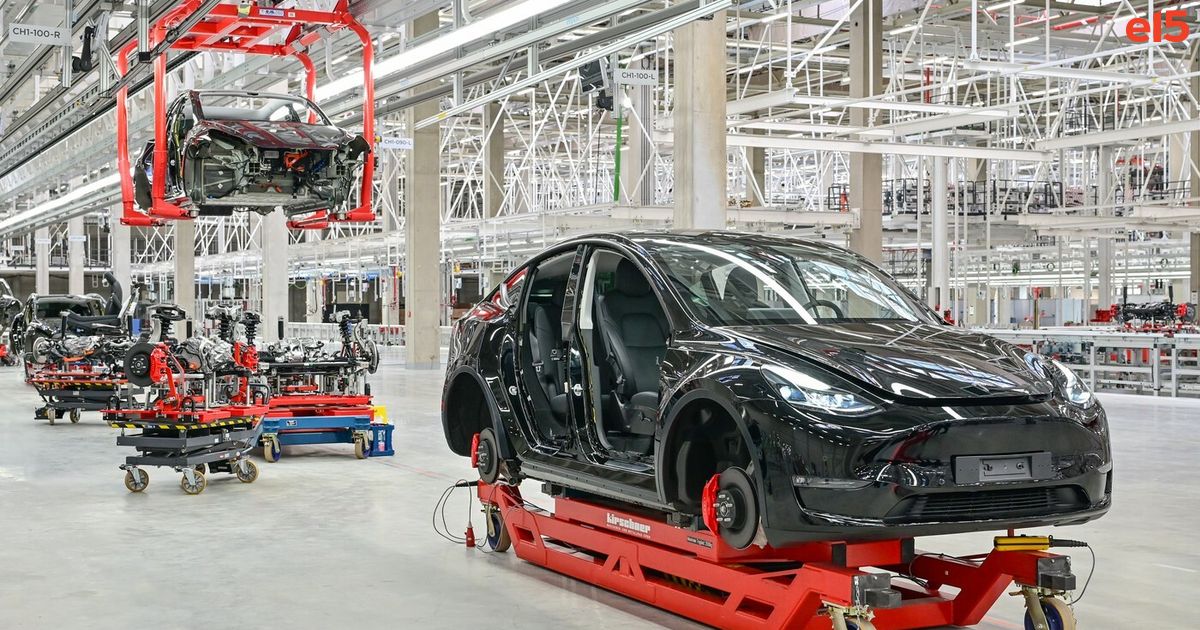Automobile companies, suppliers, dealers, as well as technological and financial companies connected to the automotive industry are sounding the alarm. The massive investment in the expansion of the electric car market is not yet sufficiently returning, pure electric cars are sold less than expected. Managers from the industry are losing confidence in more significant growth in profits, also because they will probably have to share the earnings with the technology giants. The automotive industry is unable to adapt to the rapidly developing artificial intelligence.
That’s according to a recently published global KPMG survey of 1,041 executives from automakers, suppliers, dealers, charging station providers, and connected technology and financial companies. Almost a third of these managers lead companies with a turnover of at least one billion dollars, seven Czechs also took part in the survey.
The captains of the auto industry do not see the future of the industry very rosy. Above all, they lose confidence in the growth of profits. That is, with one exception: they are more optimistic about future earnings in China, where confidence rose from 28 to 36 percent year-on-year. In Europe it fell from 31 to 24 percent, in the USA from 48 to 43, and in Japan even from 32 to ten percent. Nervousness is also clearly visible in the Czech autoland, confirms Petr Novák, director of the automotive division of JTEKT Europe, which manufactures parts for cars.
“Many car companies have started offering discounts, which has an impact on overall profitability. The industry is subject to enormous inflationary pressures in materials, energy and labor. At the same time, new competition, i.e. Tesla and Chinese automakers, is pushing for lower car prices. A lot of suppliers live on the edge of profitability and have no other choice but to raise prices or simply quit,” Novák describes. His JTEKT, which has set up a cost-cutting restructuring plan and is negotiating price increases with car companies, is having the same problems.
“Economically good times were already there. Customers will not be able and willing to buy increasingly expensive cars at the same pace as before,” says Kvido Štěpánek, one of the richest Czechs and owner of the company Isolit-Bravo, which manufactures products for the automotive industry and electrical appliances in Jablonné nad Orlicí. His words are also confirmed by representatives of individual brands, who admit that the number of accepted orders for new cars has dropped by tens of percent.
At the same time, the cooling demand does not give car companies much room for price increases. The majority of car company managers interviewed by the survey predict an increase in the prices of new cars by five to ten percent at most this year. However, it is extremely uncertain whether such an increase will be successful at a time of intensifying competition and waning customer interest.
Skepticism about profitability growth is therefore growing, mainly due to the uncertain outlook for the electric car market. “The car industry has bet a lot on them, but the return on investment will probably be slower. Also because numerous new models of electric cars are coming to the market, but at the same time demand has weakened, so the competition is getting tougher,” says Jan Linhart, an automotive expert from the Czech office of KPMG.
The car industry, which is not only important for the Czech economy, is also unable to keep up with the pace at which artificial intelligence (AI), machine learning or more sophisticated robotics are developing, the survey also shows. While automakers and suppliers are already training thousands of employees to work with AI, further collaboration between manufacturers and tech giants — and profit sharing — seems inevitable.
“Companies will certainly continue to expand artificial intelligence. We see it in car manufacturing, infotainment control, parking, but it also optimizes energy consumption while driving,” Novák enumerates.
For example, at the beginning of the year, Volkswagen created a special division that will deal exclusively with how to use artificial intelligence in the group’s products. “Digital products based on artificial intelligence will play a key role for the Volkswagen Group in the future,” the concern said.
According to Novák, accidents with cars with autonomous driving also contribute to the uncertainty regarding the introduction of new technologies. These cases are mainly handled by the pioneer of this “new” Tesla feature.
The survey was devoted to the American car company in a separate chapter. Result? Industry leaders are confident that Tesla will maintain its position as the unshakable number one in the electric car market in Europe, even more so with autonomous ones. It is to be followed by BMW and Audi in the coming years with a great distance. The Chinese BYD, which dethroned Volkswagen in its home market last year and is slowly “exploring” itself in Europe, will climb to the sixth position in Europe, according to managers.
“Especially not when they enjoy such concessions, incentives and subsidies that would be unimaginable for other companies. This is also the essence of the gigafactory in Berlin, from which Tesla is expanding into Europe,” claims Štěpánek.
Lost numbers: The only exchange that can beat the rise in bread prices. Prague against Europe and Wall Street • e15
Even the largest and wealthiest corporations are starting to save so that they can successfully go through the challenging period of fundamental changes. For example, the German Continental, which also produces in the Czech Republic, announced in mid-February that it would cut around 7,150 jobs in its automotive section. By streamlining the administration, he wants to save four hundred million euros a year.
At the beginning of this year, the German Bosch, which employs about eight thousand people in the Czech Republic and pays for the largest supplier of automotive parts in the world, also announced similar plans. It will eliminate about 1,200 positions over three years. It responds to rising costs and weak economic growth.
Škoda Auto from the Volkswagen Group will also be cutting staff. It currently employs over 36,000 people, of whom probably more than a thousand will retire. Board member Martin Jahn confirmed the intention to Novinky.cz. Its parent concern wants to save ten billion euros by 2026, which will be reflected not only in a smaller number of prototypes produced, but also in the mentioned layoffs and cancellation of positions.
2024-02-20 17:52:00
#auto #industry #close #panic #profits #thinning #Tesla #rules


